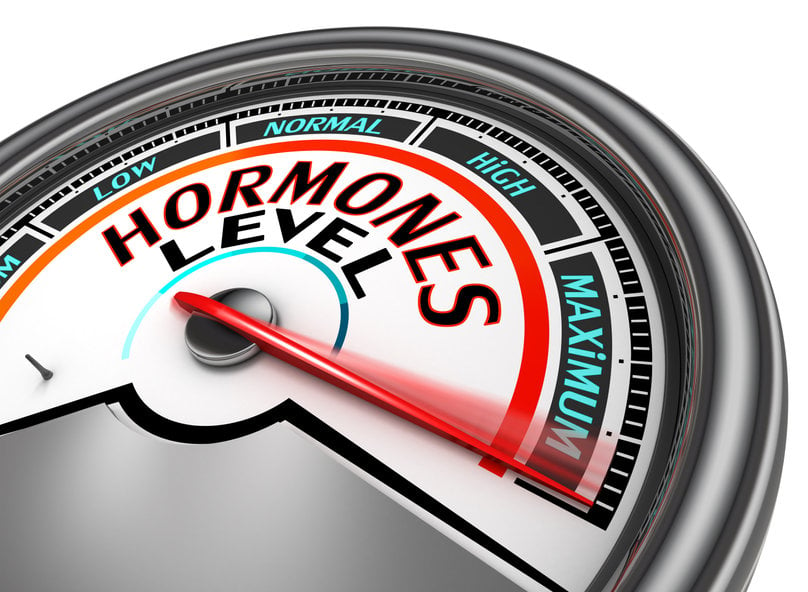What Are Hormones And How Do They Affect The Body?
The body’s hormones are produced by endocrine glands. Endocrine glands like the pituitary and thyroid glands secrete hormones into the bloodstream. These hormones tell the body to do lots of things and control different processes like menstruation and reproduction. When there is too much or too little of a hormone in the body, problems arise.

How does a hormone imbalance affect me?
Hormone imbalances are a natural part of life. During events like puberty, menopause, and pregnancy hormones fluctuate. Additionally, hormonal disorders like polycystic ovary syndrome (PCOS) lead to bodily changes. However, hormonal imbalances create uncomfortable physical and emotional side effects.
What are the signs of a hormone imbalance?
Signs of hormone imbalance vary and may present differently in both men and women. Here are a few signs of a hormone imbalance:
1. Irregular periods
The menstrual cycle occurs every 21-35 days in women. Any period outside of that time frame can be considered irregular. In women with irregular periods, months can pass with no period or the person can menstruate twice in one month. Furthermore, women with irregular periods can experience painful periods accompanied by heavy bleeding and pelvic pain.
2. Weight gain
Hormone imbalances can also cause unwanted weight gain. This weight gain can be attributed to cortisol levels, overworked adrenal glands, thyroid hormones, menopause, and PCOS. Typically, this weight gain happens without any changes to the person’s diet or exercise regimen.
3. Insomnia/Sleep issues
People with a hormone imbalance can have trouble sleeping. When estrogen and progesterone levels drop, patients can develop night sweats and difficulty falling asleep. Progesterone helps the body sleep but too much of the hormone can cause fatigue.
How does hormone imbalance lead to infertility?
Female infertility is defined as a woman that is unable to conceive after 12 months of regular, unprotected sexual intercourse. Hormone imbalances contribute to this condition by causing irregular periods or even a lack of sex drive. With infrequent periods, the body does not release eggs regularly and eggs are needed to conceive. Furthermore, hormone imbalances can lead to serious diseases like endometriosis and ovarian cancer that make conception very difficult. Follicle-stimulating hormone (FSH) and luteinizing hormone (LH) are some of the hormones involved in the egg and menstruation process.
Should I talk to a doctor?
Patients with hormone imbalance and fertility concerns should speak to a healthcare provider immediately. Doctors will examine the patient and schedule a series of tests to identify the issue. Reach out to a healthcare provider to learn more.




